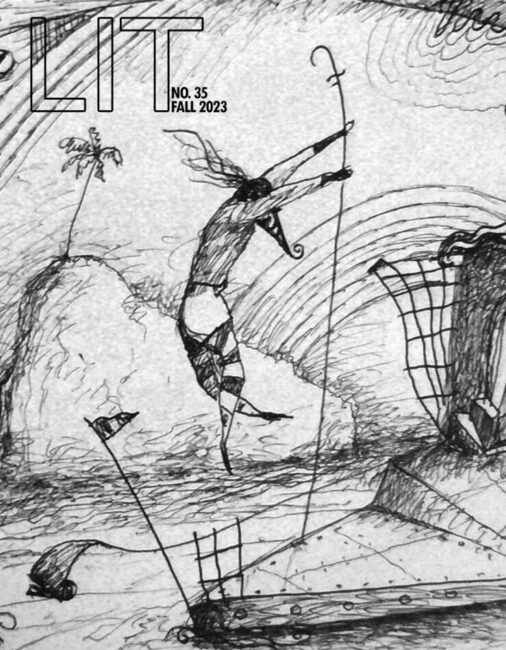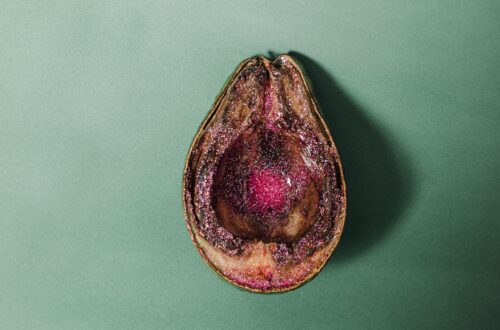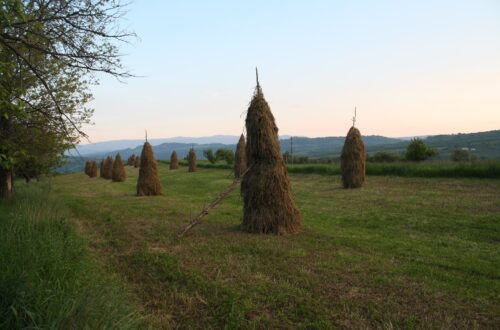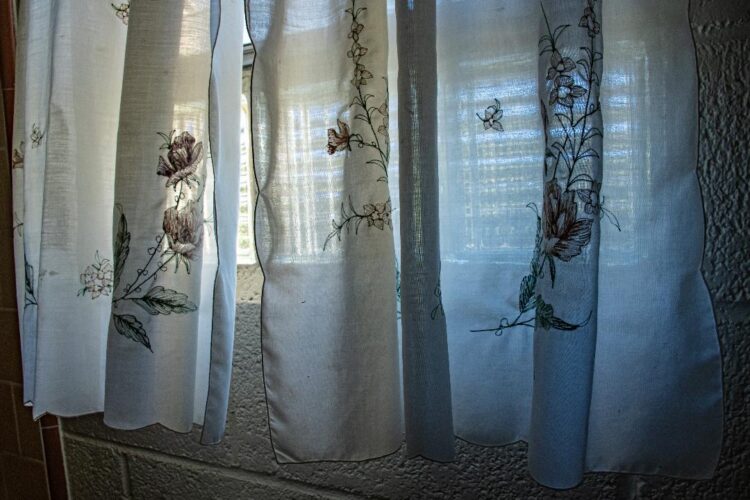
Gravity
by Lisa McMaster
photo by Peter Anderson on Unsplash
It’s a dark November evening and the rain slants across the driveway and backyard. My mom and I have just returned from my piano lesson and I am in a good mood. I am singing something silly when I see my dad sitting at the dining room table, his face drawn tight, eyes down. I keep singing because he often doesn’t smile, or say hello, when I walk into the room. When he tells me to stop, his voice is sharp and I assume I have done something wrong.
“Your cousin has died,” he says, “Cousin Robbie.”
I don’t know what to say. I am not sure why he is the one telling me, and not my mom, since it is her brother’s son, her nephew, and because she acted normal in the car. He doesn’t try to console me, instead I feel his eyes on me, waiting for me to react, but I have learned not to, especially in front of him. I feel my eyes start to sting and my body stiffen as I fight the tears. It is not easy but I have become accustomed to this battle. The instinct to cry sets off my instinct to hide.
After a silent dinner we climb into the red Dodge Colt: dad at the wheel, mom in the passenger seat beside him, my sister Heather beside me in the back. No one talks or turns on the radio. No one coughs or sneezes. No one looks out at the stream of streetlights and power lines flowing by. My dad’s jaw is stiff, his knuckles tight around the steering wheel. Headlights illuminate my sister’s round face and make sharp shadows across the seat. Grafted to our seats with invisible walls between us, eyes straight ahead as the windshield wipers slap water back and forth like a steady heartbeat.
I am eight, my sister is thirteen, and cousin Robbie was sixteen when he shot himself in the head in his bedroom. With a pistol. A birthday gift from his father. The other three kids had received the same on their sixteenth birthday. A family tradition. A family that likes to hunt. A family that keeps their words under the surface until there is nowhere else for them to go but out, in spits and hisses and full-blown eruptions. Words that can never be taken back. They camp in the woods and in the desert. They search for snakes and rabbits, deer and coyotes. Last summer when Robbie shot a bear, his father, Troy, was proud. He smiled and bragged. Robbie was the son he had been expecting each time his wife gave birth. Their last child, Troy’s last chance to get it right. I imagine my own father feeling this way had I been born a boy.
Even in the dark I can feel the shift of leaving Portland and entering Vancouver as the car rolls along the interstate and over the river. We drive through downtown, past broken glass and vacant storefronts, back alleys and empty parking lots. After endless stops and turns we pull up to Uncle Troy’s house. The first floor is lit up behind curtains, the upstairs windows are black. I used to imagine the house was haunted and now I am sure it is. The branches of the monkey trees in front swing back and forth, casting streetlight shadows across the porch.
Inside, Aunt Alice is washing out mugs as the coffee maker gurgles and spits. The dim light of the kitchen is a contrast to the other rooms. She stares at her reflection in the dirty window above the sink, the red handkerchief she usually wore while camping to cover her unwashed hair is tied around her graying head. A ghost of herself, mimicking her every movement. Mocking her. She doesn’t hear us come in so when my mom asks how she is, she jumps. She turns, says “all right,” and reaches for a dishtowel.
“There’s hot water in the kettle,” she says. She remembers my mom doesn’t drink coffee.
“We’re having a private graveside ceremony next Tuesday,” she says. “We won’t be stepping foot inside a church.”
Alice’s mother sits in a corner of the couch, in the living room, under a red-and-black afghan watching Entertainment Tonight. She chain-smokes Kool Menthol Lights, her hand shaking as she holds the long white filter between bony fingers covered in brown freckles and blue veins. There is an oxygen tank on the floor next to her exposed white leg that makes me think of the skeleton from science class. Her short thin hair a faded orange, mashed flat in back from the pillow behind her head. Wrinkles like long, dried-up river beds. Every few minutes she coughs, a deep and shattering hacking I can feel in my own lungs. The volume from the television is too loud and smoke drifts up toward the yellowed ceiling like undecipherable smoke signals.
It is a week before Thanksgiving. We won’t be spending it at this house like we have done since I can remember. But I don’t know this yet. I also don’t know that Uncle Troy and Aunt Alice will stop celebrating Christmas. No more Douglas firs up to the ceiling wrapped in lights and silver tinsel. No more presents and holiday meals because it reminds them someone is missing. Family gatherings remind them that time marches forward. Time fills in the holes, but they don’t want to move forward. They don’t want to feel normal, to forget. I don’t know that next June their site at the campground will be empty, and will remain empty, and that the emptiness will eventually become normal. I also don’t know this is the last time I will be inside their house because they will stop inviting family and friends over. This house will become a bunker of regret and sadness.
I don’t know what to do with myself. Everyone seems to have found their place in the kitchen, around the dining room table, the couch. Each family member a piece of a puzzle I don’t know where I fit in to. So I sit on the edge of a chair farthest from Alice’s mother, as if death is contagious. I don’t want to look at her but I can’t seem to stop. She is terrifying. I force my eyes toward the television, but I only see the staircase behind it. White-painted wooden railing. Tiny window at the second landing where it turns. Upstairs where the bedrooms sit quietly in the dark, as if waiting for someone to ask them the meaning behind what they’ve seen. As if they could know. Upstairs where Robbie’s fingerprints rest, invisible and untouched, sealed behind a locked door. Locked with the key Uncle Troy keeps deep inside his right shirt pocket. I stare up into the darkness. I remember all the ways I went up and then down that those stairs, but tonight they are only slats of wood, endless steps leading to dark places I don’t want to go.
Robbie started taking flying lessons when he was fifteen. He rode in his uncle’s small plane whenever he visited Texas. Uncle Norm was a crop duster for thirty years in Dumas. Robbie admired his uncle, wanted to fly like him. To be up high over the trees and mountains, where houses were only matchboxes, and his family members the size of ants. Where he felt safe. He dreamed of being a pilot, flying to distant countries, soaring free. Two months after Mt. Saint Helens blew its top, and four months before he died, Robbie flew over the mountain with his flight instructor. He took off, flew, and landed by himself. His brother Mike sat in the back, the brother that had gone off to college and now lived in Spokane with a wife and new baby. Mike was no longer close to Robbie because of the distance, but he remembers that day, flying over the gaping hole, the ground covered in ash and fallen trees ripped from their roots.
Uncle Troy comes in from outside with my dad behind him. They have been smoking cigarettes in the back yard. They have been talking about hunting and about work. About neighbors that piss them off. Uncle Troy talks about the tool shed he wants to build. They pull up chairs at the dining room table. They look at the plans Uncle Troy has sketched into a notebook. They talk about the roof, about how it should slant to keep the rain away. They talk of insulation and plywood, windows and door hinges. They talk more than they ever have. They are talking when my cousin Mary walks through the front door. Troy’s only daughter. She is with a friend.
Mary sits down on the couch next to her grandmother, her friend close beside her, arm in arm. Mary’s face is pink and chapped. She doesn’t smile. She doesn’t look around, her eyes cast downward like they are closed. She is seventeen, with posters taped to her bedroom walls and handwritten notes folded into her pockets. She wears blue eye shadow, her nails are painted pink, hair permed into tight curls. She collects nail polish and signed photographs of Rick Springfield, perfume bottles and fashion magazines. Tonight she is collecting gravity and it pulls at every edge of her. Two days ago Robbie was here, after school. They were both here, and they were fighting. Mary won’t say what it was about. Alice won’t say, either. They yelled and screamed. Robbie ran up the stairs. His door slammed shut.
In his bedroom, in the drawer of his nightstand, clean and loaded with the safety on. His father taught him how to care for it, to respect it, to keep it unloaded in the house, but he is sixteen. Outside the window the sky is a gray drizzle. The room is fading, the lights not turned on. Sixteen years old and all hormones. The brain is trying to keep up with the limbs. The prefrontal cortex is not yet fully developed. There is a lack of awareness, a startling lack of awareness of long-term consequences. There is no time for waiting, and no way to see past the present. The family picks at each other, finds the weak places and pokes. Downstairs someone is fighting with Mary, an argument carried over from the morning. Carried throughout the day. Carried through the years. Downstairs with Mary. Mom in the kitchen. Mom choosing sides, and Robbie feels cornered. Ganged-up on. He calls his dad at work. Words flutter from his mouth into the plastic holes, through the cord, into the wall. They fly along cables and through trees. For miles over streets and over the river. They fall into his father’s ear.
“Knock it off,” he says to his son. “Just walk away.”
And he does.
When Norman bursts through the front door, the adults are sitting around the dining room table, mugs steaming in their hands. He is the oldest, the one who lives with friends, on couches, in trailers, in cars. Odd jobs and long naps. Red pills and white powder. Blue pills and green buds. He has always clashed with Troy. Not the son his father can relate to, Norman prefers bird watching over hunting and music over sports. He prefers friends over family and questions rules. Norman is searching for himself. He is finding solace in drugs, trying to shake free the years of confidence-shattering words from Troy. He will soon trade his drugs for religion, but not tonight. Norman hones directly in on his father, like eyes through a lens. He walks straight towards him. He throws a punch at the side of his face. He shows his father what a “real” man looks like, the one he was told that he wasn’t. Uncle Troy is stunned. He stands, then drops to the floor when pushed, Norman on top of him. Norman yelling “it’s all your fault, it’s all your fault.” Norman is wailing. “He’s dead and it’s all your fault.”
My sister starts to cry. She is on the couch next to Mary and Mary’s friend ushers us out to the porch. The air is damp and shocks my coat-less arms. The porch light is a naked bulb and I see spots. Through the screen door I see my dad pulling Norman away from his dad. My mom is saying something, I can see her mouth moving, her lips pulled tight the way they do when she is upset. My insides are churning, churning, and I feel like I am floating, like a bug overturned, legs struggling in the air. Tears are leaking from Heather’s eyes and nose and her lips are curling inward as she whimpers. Mary’s friend wraps a blanket around her shoulders and whispers “it’s gonna be okay, it’s gonna be okay.” I am too stunned to cry. I’m scared and heartbroken, but no one sees this because I’ve mastered hiding my emotions. Robbie was my favorite cousin. He was weary around strangers, like me, and when I would grow bored with Mary’s make-up and Teen Beat magazine collections, Robbie let me look at his model airplanes and arrowhead collection. I miss him, but at this moment all I can think about is how it feels to not have arms around me.
The following summer, during school break, my parents are at work and I am home with my sister. It’s late July during a hot spell and her friends from down the street are over. They have bottles of Sun-In they are spraying on their hair to give them golden highlights when they lie in the sun. My best friend comes over and we watch, from the bathroom door, the three older girls crowded into the bathroom, faces to the mirror, combs in midair. My sister, who is closest to the door, turns and sees us watching.
“Have you guys noticed how long Lisa’s face is?” she says. Everyone looks at me. “And her nose?”
Her friend says “Yeah, she’s like the wicked witch of the west.” They laugh.
“Where’s your broomstick?” the third one adds. They laugh again. They compare their own faces, variations of round, in the mirror. This is not the first time my sister has pointed out my body parts in front of friends, in front of the family – long legs, long arms, long feet, long toes – and does not let me forget that I am not pretty like she is. I stand still, fighting the tears threatening my armor. I feel the world shift, again. I slink away, with a mumbled excuse to my friend about needing to get something from downstairs. I disappear.
In the basement I find my father’s pistol in the top drawer of his dresser in the back of the closet. The gun is in a brown leather case but I don’t take it out. I hold it with both hands, surprised by its weight. I have no desire to shoot, I don’t even know how, but I am drawn to it anyway. It gives me a feeling of power, a feeling I have some say in the life around me, but I am not fully aware of this. I think of my cousin, his family’s sadness, mine. I feel shame, isolation, out of control.
One of the first memories I have of my father is in the dining room when I am three or four years old. He is watching us because my mom works full time during the day while he is finishing up a degree in accounting on a GI Bill he earned from four years in the Marine Corp. We are alone, he is sitting at the dining room table and I am standing, my face below table height. He is angry at me for something I don’t remember doing. His harsh words are like jackhammers that I shrink from.
“Why can’t you be like your sister?” he says, though even then I know it is not really a question. This will become a familiar line, just between us, when my mom is not around, because he must know on some level that this is not a reasonable thing to say to a child.
My sister enters the room, the four girls crowded behind her, because they hear me crying, they witness my tears, my red face, the pistol in my hands. They see the freak my sister says I am. And when she asks me what the hell I am doing and tells me to put it back, I do. Shame wraps itself around me like a dark cloud and nothing looks as it should. When she tells my mom that evening, she says nothing. It is never talked about. The next week I am sent to summer bible camp with no explanation. I don’t need one because we all know I am the bad seed in this family. The camp is for two weeks and I am terrified because I don’t know anyone, and I just want to be home where my friends are. On the first day, the little Bert and Ernie truck I bring is yanked away from me by some little boy, but I am the one who gets in trouble for throwing a tantrum. On the last day, I am stung on the arm by a wasp.
When my mom says she made an appointment for a family counselor I assume it is because of me. That it is because of me that my dad has bad moods, is short-tempered, yells. I am not all smiles and yesses. I ask questions, I pester, I annoy. I am not “being like my sister” because I don’t know how to be her. The day we drive to our first and last counseling session I am anxious, embarrassed. Halfway through the hour, the counselor sends me and my sister out to the waiting room where we skim through fashion magazines and suck hard candies from the bowl at the table beside us. I wonder what they are saying behind the closed door. It feels like I am waiting for a verdict. When the door opens, my dad’s face is a stone wall and he doesn’t say a word the entire ride home. Later I learn that the counselor mostly blamed him for our family’s problems, and not me. I was the scapegoat, but he did not agree, which is why he never went back. And why I did.
So that night on Uncle Troy’s porch, standing in the shadows, I imagine my hand on Robbie’s arm, and for a moment he stops and listens. I tell him it will all work out, that soon he will be grown up and able to make his own decisions. He will be free to fly over any mountain he wants to. And for a moment he sees me, and I see the man inside the boy, standing next to a plane, with one hand on the wing, and a smile as wide as the sky.
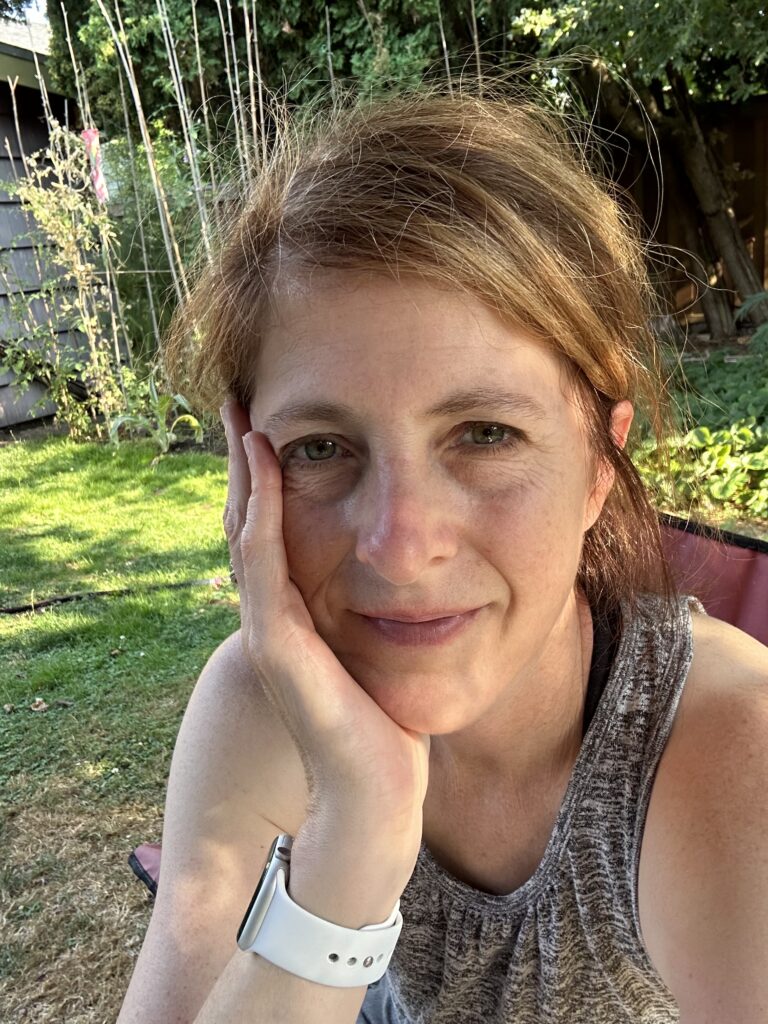
Lisa McMaster lives in Portland, Oregon with two roommates and four cats. She is currently fostering a momma cat with three kittens she rescued on a recent trip through Alturas, California. She has published in Bridge Eight Literary Magazine, issue 5. For money, she pet sits and delivers packages. Her passions are animals, road trips, music, and always, a good story.
